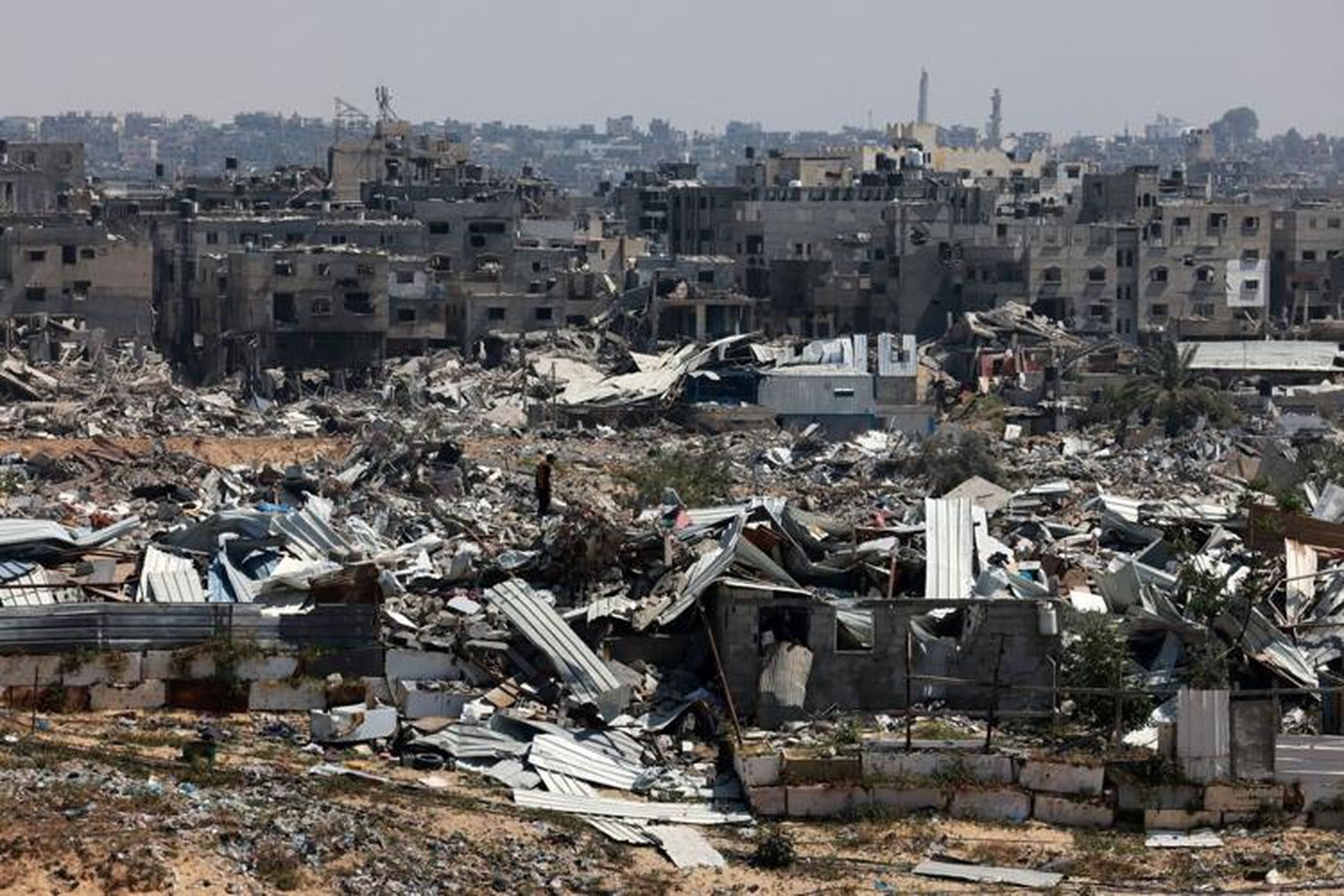Israel-Gaza War
Israeli Military Withdraws from Khan Younis, Signaling Shift in Gaza Conflict Strategy
The Israeli military announced on Sunday that it has completed the withdrawal of its ground forces from Khan Younis, a key city in southern Gaza, after months of intense fighting. This move marks a pivotal shift in the Israeli military strategy, raising questions about the future direction of the war and its implications for the region.
Khan Younis, a stronghold of Hamas and the scene of some of the fiercest battles in the conflict, has been under Israeli military operation for several months. The Israel Defense Forces (IDF) stated that the 98th division, which had been leading the operations in Khan Younis, had "concluded its mission" and was leaving the Gaza Strip to "recuperate and prepare for future operations." Despite the withdrawal, the IDF emphasized that a "significant force" led by the 162nd division and the Nahal brigade continues to operate in other parts of the Gaza Strip, maintaining the IDF's freedom of action and its ability to conduct precise intelligence-based operations.
The withdrawal from Khan Younis comes on the heels of the six-month anniversary of the Hamas attacks that ignited the current conflict. It also precedes ceasefire talks scheduled in Cairo, with delegations from both Israel and Hamas expected to attend. The timing of the troop withdrawal has led to speculation about its potential impact on the ceasefire negotiations and the broader conflict dynamics.
Israeli military officials have been tight-lipped about the specific reasons for the withdrawal, declining to comment on whether it signifies a complete end to ground operations in southern Gaza. However, the move is widely interpreted as part of a strategic shift by the Israeli military. After months of heavy fighting and significant casualties on both sides, the focus appears to be moving towards targeted operations based on specific intelligence, rather than maintaining a continuous ground presence throughout Gaza.
The withdrawal has also been linked to humanitarian concerns, with hopes that it will facilitate the movement of more humanitarian aid within Gaza. The region has been grappling with a dire humanitarian situation, exacerbated by the conflict. The lack of a "day after" plan, however, raises concerns about a potential security vacuum in the areas now left by the Israeli forces, which could lead to the resurgence of Hamas cells, as witnessed in northern Gaza.
On the international front, the withdrawal has elicited mixed reactions. Some view it as a positive step towards de-escalation and a potential ceasefire, while others remain skeptical about its impact on the long-term resolution of the conflict. The move has also sparked discussions about the role of international mediators in facilitating negotiations between Israel and Hamas, with the upcoming talks in Cairo seen as a critical test of their ability to broker a lasting peace.
As the situation continues to evolve, the eyes of the world remain fixed on Gaza. The withdrawal from Khan Younis is a significant development, but it is just one piece of a complex puzzle. The coming days and weeks will be crucial in determining whether this move leads to a de-escalation of the conflict or if it is merely a prelude to further violence. With the humanitarian crisis in Gaza deepening and the geopolitical stakes higher than ever, the international community's role in supporting a sustainable resolution to the conflict has never been more critical.

